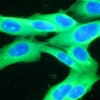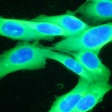
French biotech firm Sensorion has received approval to initiate a phase I and II clinical trial in France of SENS-501 (the OTOF-GT program), its gene therapy for gene-mediated hearing impairment.
The report -- issued according to regulation EU 536/2014 covering France, Italy, and Germany -- concluded that the conduct of the clinical trial outlined in Sensorion’s clinical trial application is acceptable, the firm said in a statement.
The phase I/II Audiogene trial aims to evaluate the safety, tolerability, and efficacy of intracochlear injection of SENS-501 in pediatric patients between the ages of six and 31 months at the time of treatment. Two cohorts of patients will be recruited for the trial, one as a dose-expansion cohort. While determining the safety and tolerability of the gene therapy is the primary endpoint of the trial, the auditory brainstem response in patients will be the primary efficacy endpoint of the dose-expansion cohort.
The OTOF-GT gene therapy program is aimed at treating patients with mutations that result in otoferlin protein deficiency, which causes severe to profound sensorineural prelingual nonsyndromic hearing loss. The program aims to restore hearing in people living with this form of congenital deafness.
In Sensorion’s treatment, the otoferlin protein is delivered to the inner ear using two standard gene therapy vectors (adeno-associated virus) and is assembled in place. This dual gene therapy was successful in preclinical studies conducted in mice; the two parts of the otoferlin gene were successfully delivered and the protein reassembled, and hearing was restored.
SENS-501 was developed within the framework of Rhu Audinnove, a consortium comprising Sensorion, Necker-Enfants Malades Hospital, the Institut Pasteur, and the Fondation pour l’Audition. The French National Research Agency has partially financed the project through its “investing for the future” program.



















